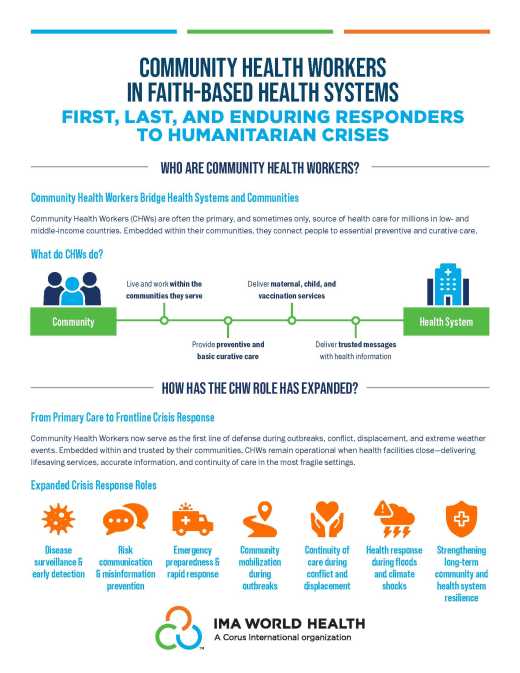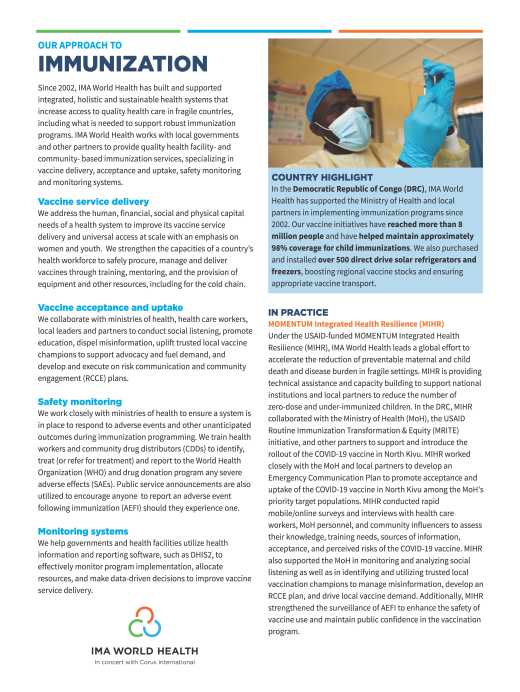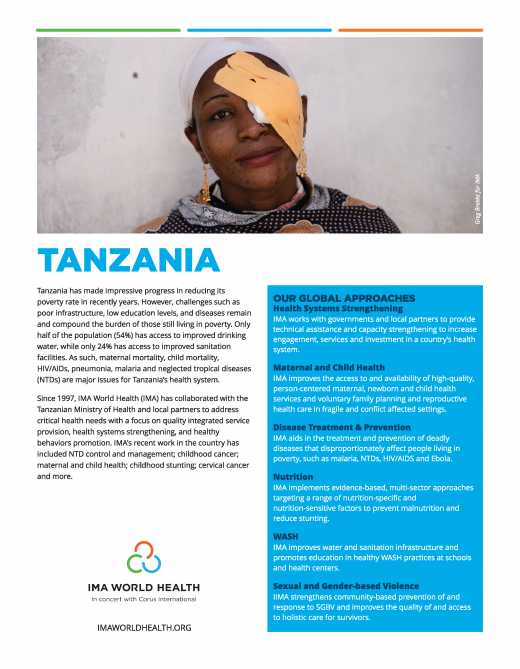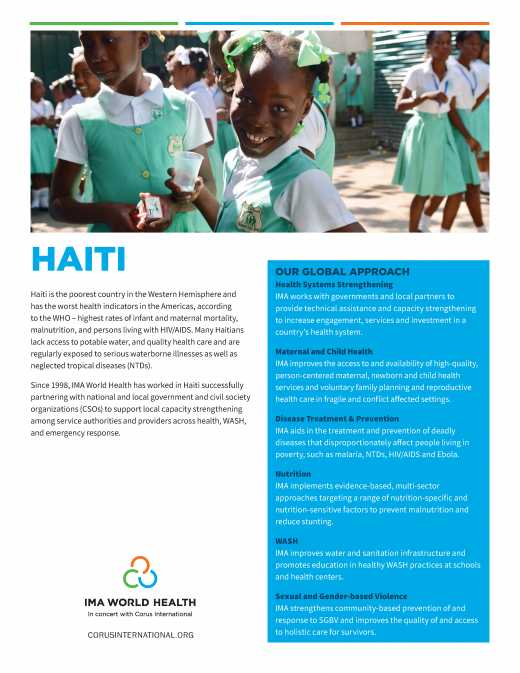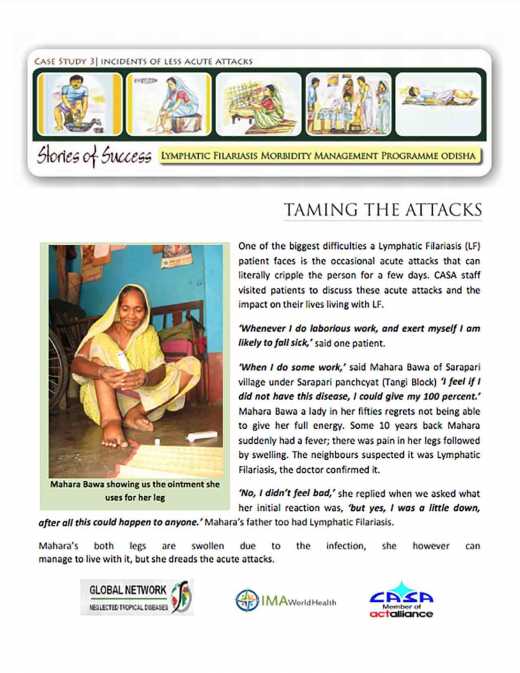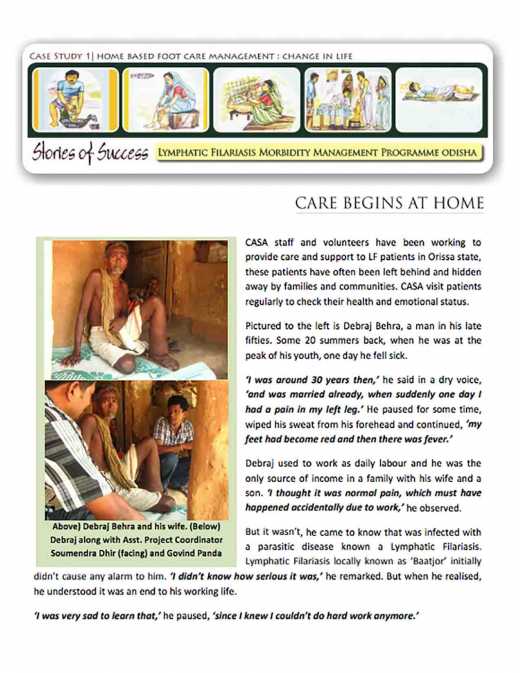Neglected tropical diseases (NTDs) affect more than 1 billion people around the world, with nearly 1.5 billion in need of prevention or treatment, according to the World Health Organization. These diseases largely affect people living in poverty—especially those without access to clean water, sanitation or basic health services. Women and children are often the hardest hit, facing the greatest barriers to care and the most severe consequences.
Preventing, controlling and ultimately eliminating neglected tropical diseases (NTDs) is essential to achieving broader health and development goals. These diseases limit educational opportunities by keeping children out of school and hindering their physical and cognitive development. For adults, NTDs can mean the inability to work and provide for their families, deepening cycles of poverty. They also place a heavy economic strain on entire communities, reducing productivity and overwhelming already fragile health systems. In many cases, NTDs lead to long-term physical disabilities which can cause stigma, social exclusion and a deep sense of shame, further marginalizing those affected.
IMA World Health has been working to address NTDs for more than 20 years in Asia, Africa and the Caribbean. IMA World Health projects primarily target the five preventative chemotherapy NTDs:
- lymphatic filariasis (LF)
- onchocerciasis (known as River Blindness)
- trachoma
- schistosomiasis (SCH)
- soil-transmitted helminths (STH)
IMA has also addressed visceral leishmaniasis, commonly known as kala-azar, in endemic areas within South Sudan, and previously, in India.
As a recognized leader in the control and elimination of NTDs, IMA World Health uses a combination of evidenced-based strategies to design and scale-up NTD projects, in partnership with local governments and civil society partners. Following the World Health Organization's Neglected Tropical Disease Road Map, IMA World Health's NTD programming is moving the needle towards meeting the 2030 control and elimination goals.
Project Highlights
In partnership with the END Fund, IMA World Health’s Urgent Continuation of Visceral Leishmaniasis Services project has provided lifesaving VL treatment by supporting 25 health facilities in the four VL-endemic states of South Sudan—Upper Nile, Jonglei, Unity and Eastern Equatoria—since 2021. The project supplies World Health Organization-donated diagnostics and medication to supported facilities, trains health care workers in VL identification and treatment, and deploys community health volunteers. Since 2021, 18,124 people have been screened for VL, with 2,802 patients enrolled in treatment. More than 250 medical personnel have been trained in diagnosis and treatment, 75 community health volunteers have been engaged to support active case detection and promote community awareness, and over 9,000 people have been reached through advocacy and sensitization activities. Since 2023, IMA World Health has partnered with the Drugs for Neglected Diseases initiative (DNDi) to directly support South Sudan’s Ministry of Health Case Management NTD office by conducting joint field supervision visits, facilitating VL technical working group and stakeholder meetings, and strengthening infrastructure at the Juba Ministry of Health office through improved equipment and connectivity.
Through the U.S. Centers for Disease Control and Prevention-funded Elimination of Lymphatic Filariasis in Haiti project, IMA World Health partnered closely with the Haiti Neglected Tropical Disease Control Program to develop evidence-based technical guidance on lymphatic filariasis and carry out awareness activities to help communities prevent, treat and control the disease. Despite extremely challenging conditions in Haiti—including political instability, violence, natural disasters and disease outbreaks—the project team made significant progress in improving drug accessibility for hard-to-reach communities. To better understand the number of people needing treatment, the team conducted a school census and worked alongside key community figures, such as religious leaders and teachers, to build local trust and support. In September 2023, IMA World Health supported the country’s first-ever rollout of the highly effective triple-drug therapy—ivermectin, DEC and albendazole, known as IDA. In just ten days, 45,255 people were treated, including 17,920 children, reaching 74.4% of the population in the targeted commune of Limonade. During the second World Health Organization-recommended round of IDA mass drug administration in July 2024, the project achieved 68% coverage. This pilot activity demonstrated that the new and effective approach can be scaled up in Haiti and has the potential to benefit more than 2.4 million people.
IMA World Health implemented the Sightsavers-funded SAFE project across six regions of Tanzania, targeting 19 trachoma-endemic districts home to nearly four million people. The project focused on strengthening district-level eye care departments by building the technical and managerial capacity needed to independently manage trachoma-related blindness. This included supporting case finding and organizing outreach surgeries in alignment with the World Health Organization’s SAFE strategy for trachoma control. By partnering with government-run clinics and leveraging faith-based networks, IMA World Health prioritized local capacity strengthening and expanded trachoma interventions in some of Tanzania’s most remote and hard-to-reach areas. Over the nine years of implementation, the project managed more than 12,000 cases of blinding trachoma—trachomatous trichiasis, or TT—and trained 7,022 community case finders, 87 screeners, 79 assistant surgeons and 26 surgeons.
The Act to End NTDs | East project built on more than a decade of USAID investment in the control and elimination of five neglected tropical diseases (NTDs) through ENVISION and other predecessor projects. Under the leadership of RTI International, IMA World Health led the implementation of activities to support Haiti’s NTD Control Program in its efforts to eliminate lymphatic filariasis (LF) and control soil-transmitted helminths (STH) through mass drug administration (MDA), transmission assessment surveys (TAS) and surveillance. IMA oversaw MDA in 22 communes. By the end of IMA’s programming, 122 of Haiti’s 140 communes—87%—had achieved the criteria for stopping MDA for LF. That meant 7,334,355 Haitians, out of the original target population of about 11 million, were no longer at risk. Additionally, the prevalence of STH among school-age children significantly decreased thanks to MDA, from 37% in 2002 to 14.5% in 2019—resulting in improved health, nutrition, school attendance and academic achievement for hundreds of thousands of children.
In Tanzania, IMA World Health led the implementation of activities with the Ministry of Health and Social Welfare to eliminate three NTDs—LF, trachoma, and onchocerciasis (river blindness)—and to control two NTDs: schistosomiasis and STH. IMA oversaw MDA in 19 regions and 134 districts across Tanzania. Through IMA’s involvement in Act to End NTDs | East, 3,400 health workers, 8,900 teachers and 35,700 community drug distributors were trained to support the treatment of 20 million individuals annually. More than 9 million treatments were administered in 41 districts with a target coverage rate of 80%, and 65 local government authorities received grants to implement preventative chemotherapy.
The ENVISION project, funded by USAID and led by RTI International, aimed to control and eliminate five neglected tropical diseases (NTDs)—lymphatic filariasis (LF), onchocerciasis, schistosomiasis, soil-transmitted helminths (STH) and trachoma—across the Democratic Republic of Congo (DRC), Tanzania and Haiti. In the DRC, IMA World Health conducted annual mass drug administration (MDA) of three medications, reaching more than 500,000 people in six health zones in northern Maniema Province in 2015–2016 and three zones in 2017, with the goal of treating at least 80% of the population for LF, onchocerciasis, schistosomiasis and STH.
In Haiti, IMA World Health served as the lead implementing partner, working alongside the Haiti Neglected Tropical Disease Control Program, a joint effort of the Ministry of Public Health and Population (MSPP), the Ministry of Education and other partners. IMA supported the government to deliver MDA through community posts and schools across all 10 departments to treat LF and STH, training approximately 34,000 community leaders, promoters and distributors to raise awareness and maximize household participation. IMA also led the scale-up of nationwide treatment, reaching nearly 6 million people annually for LF and STH. Following World Health Organization (WHO) guidelines, IMA and partners conducted transmission assessment surveys (TAS) in communes with at least five consecutive high-coverage MDA rounds and where infection prevalence fell below WHO thresholds.
In Tanzania, IMA World Health collaborated with the Ministry of Health and Social Welfare to eliminate and control five endemic NTDs. IMA coordinated MDA across 19 regions and 134 districts, training more than 11,400 health workers, 27,000 teachers and 90,000 community drug distributors to support treatment for over 20 million individuals annually. In alignment with WHO’s global control and elimination goals, IMA and the Tanzania NTD Control Program carried out MDA, disease-specific assessments (DSAs) and other interventions in all NTD-endemic districts across mainland Tanzania.
IMA assisted DRC's Ministry of Health in 52 health zones to integrate NTDs within the overall basic health care package and to better plan and implement MDA in the ASSP project, funded by UK Aid's Department for International Development (DFID) (now FCDO). Through ASSP, IMA organized a Vitamin A supplementation campaign for children 6-59 months and de-worming with mebendazole of children 12-59 months in all of ASSP’s supported health zones. In total, 1,542,053 children received Vitamin A and 1,261,398 children received mebendazole during this campaign. Learn more.
IMA World Health worked with partners to provide emergency response for the treatment of visceral leishmaniasis (kala-azar) in Jonglei and Upper Nile states. Kala-azar, which is transmitted by the sandfly, is almost always fatal if not treated. This program improved VL diagnosis and effective treatment, built surveillance capacity and improved the ability to respond to outbreaks. To accomplish these goals, IMA World Health trained 318 health workers, supervised kala-azar treatment centers, established emergency response teams, provided pharmaceuticals and supplies and supported the Ministry of Health’s Case Management-NTD Department and the National Reference Laboratory.
Through the Advancing the Control and Elimination of NTDs project, IMA World Health advanced NTD prevention, control and treatment across the globe. IMA World Health provided lymphatic filariasis transmission assessment survey trainings in Ghana, Senegal and Uganda. In Haiti and Tanzania, IMA World Health collaborated with the U.S. Centers for Disease Control and Prevention to formulate global guidelines for integrated NTD and malaria surveys. In India, IMA World Health partnered with the Church’s Auxiliary for Social Action to develop and implement community-led, home-based care and treatment programs for patients suffering from LF-induced lymphedema, reaching more than 6,000 people. In 2018, IMA World Health supported the implementation of an improved urban mass drug administration strategy for lymphatic filariasis in the metropolitan communes of Port-au-Prince, Haiti.
The Corus Effect
Founded in 1960, IMA World Health is a leading public health organization operating in some of the world's most fragile settings. In partnership with local partners and governments, IMA strengthens health systems, improves maternal and child health, prevents and treats diseases, promotes nutrition and water, sanitation and hygiene, addresses sexual and violence against women and girls and responds to global health crises.
IMA World Health is part of Corus International, an ensemble of global leaders in international development and humanitarian assistance. In addition to IMA World Health, the Corus family of organizations includes global non-governmental organization Lutheran World Relief, U.K.-based technology for development company CGA Technologies, impact investing group Ground Up Investing, and direct trade company Farmers Market Brands.
We operate as permanent partners, integrating expertise, disciplines, approaches and resources to overcome global health challenges, develop productive and stable economies, improve resilience in the face of climate change, and respond to natural disasters and humanitarian crises.



